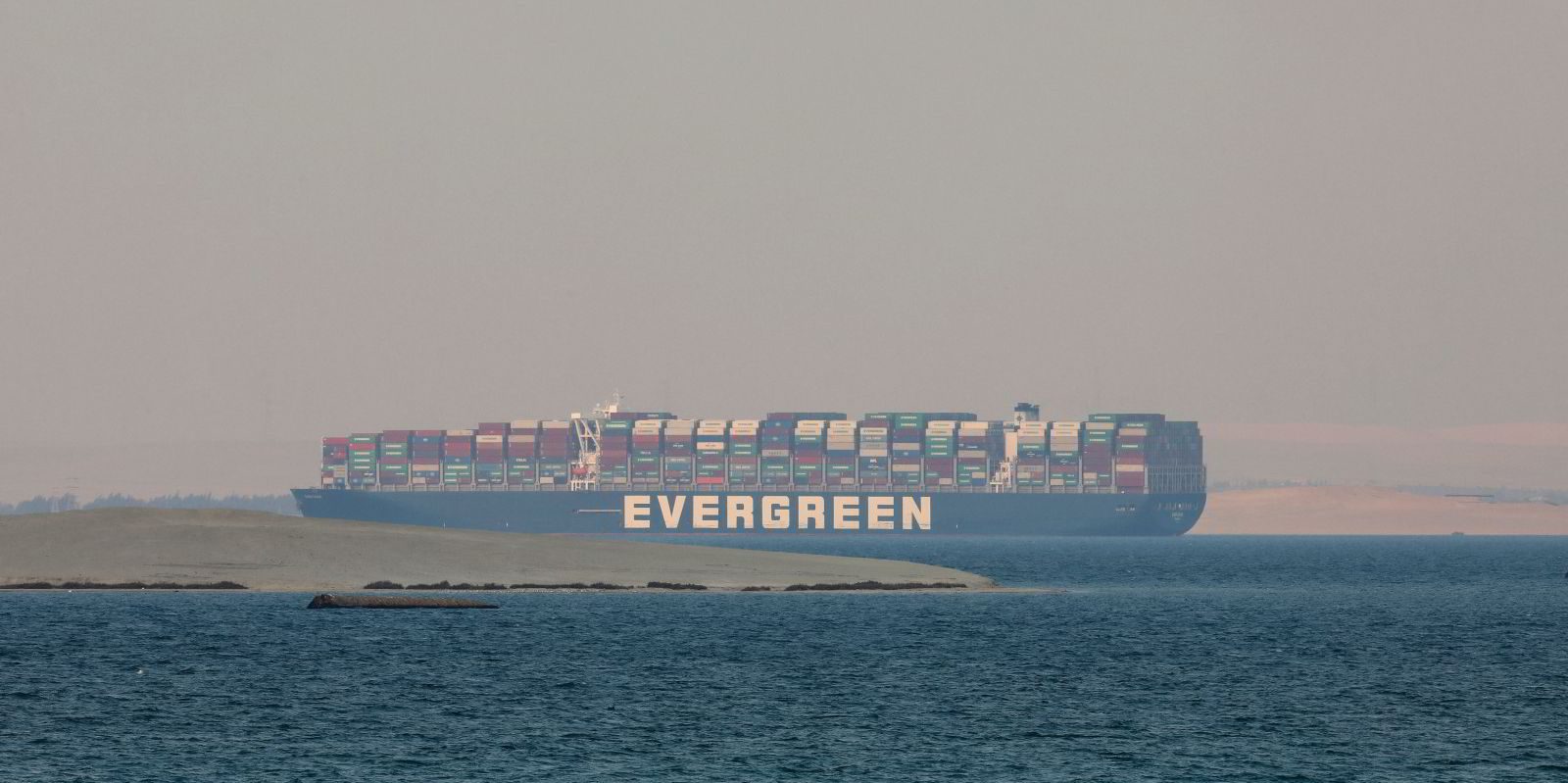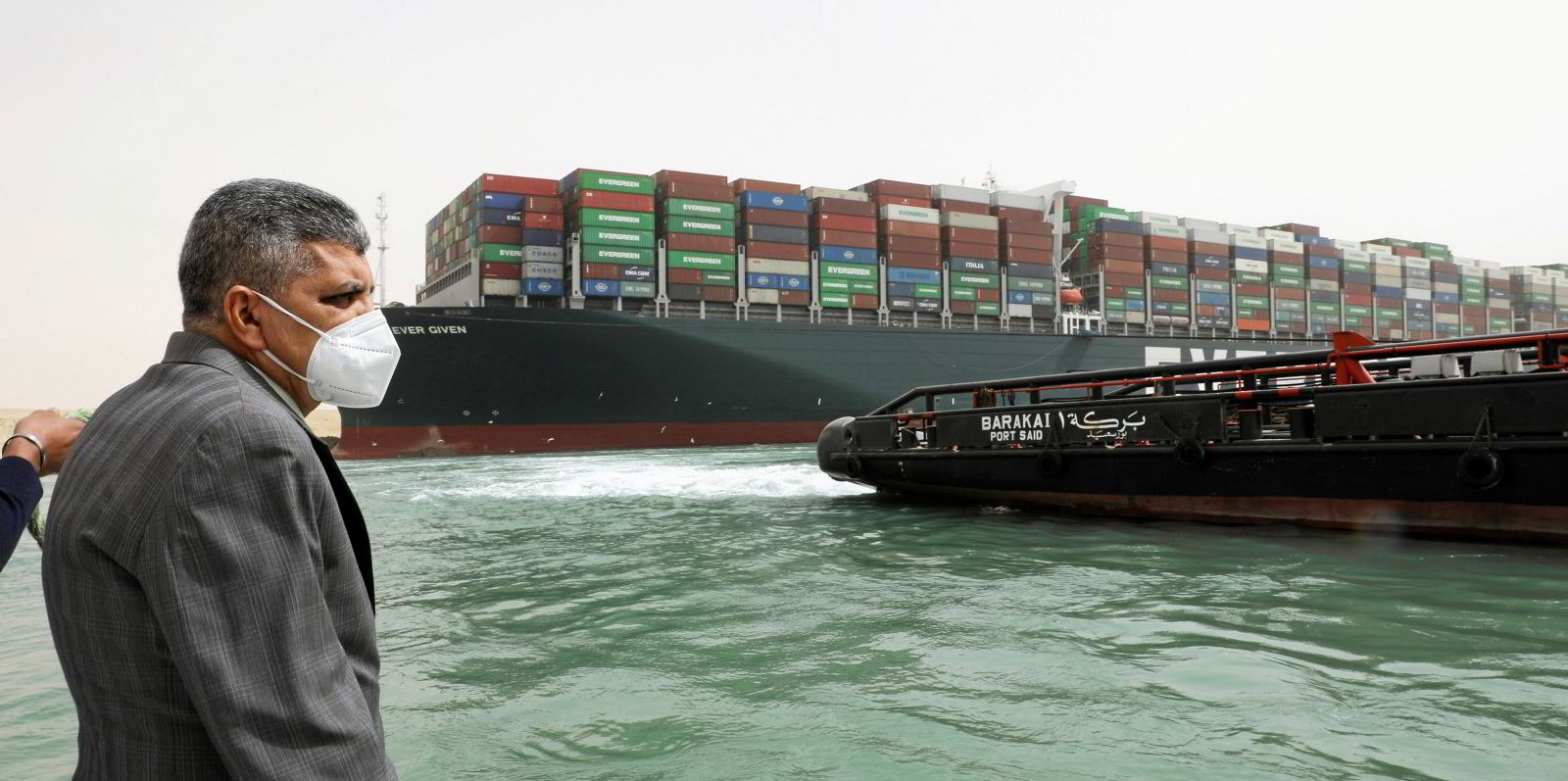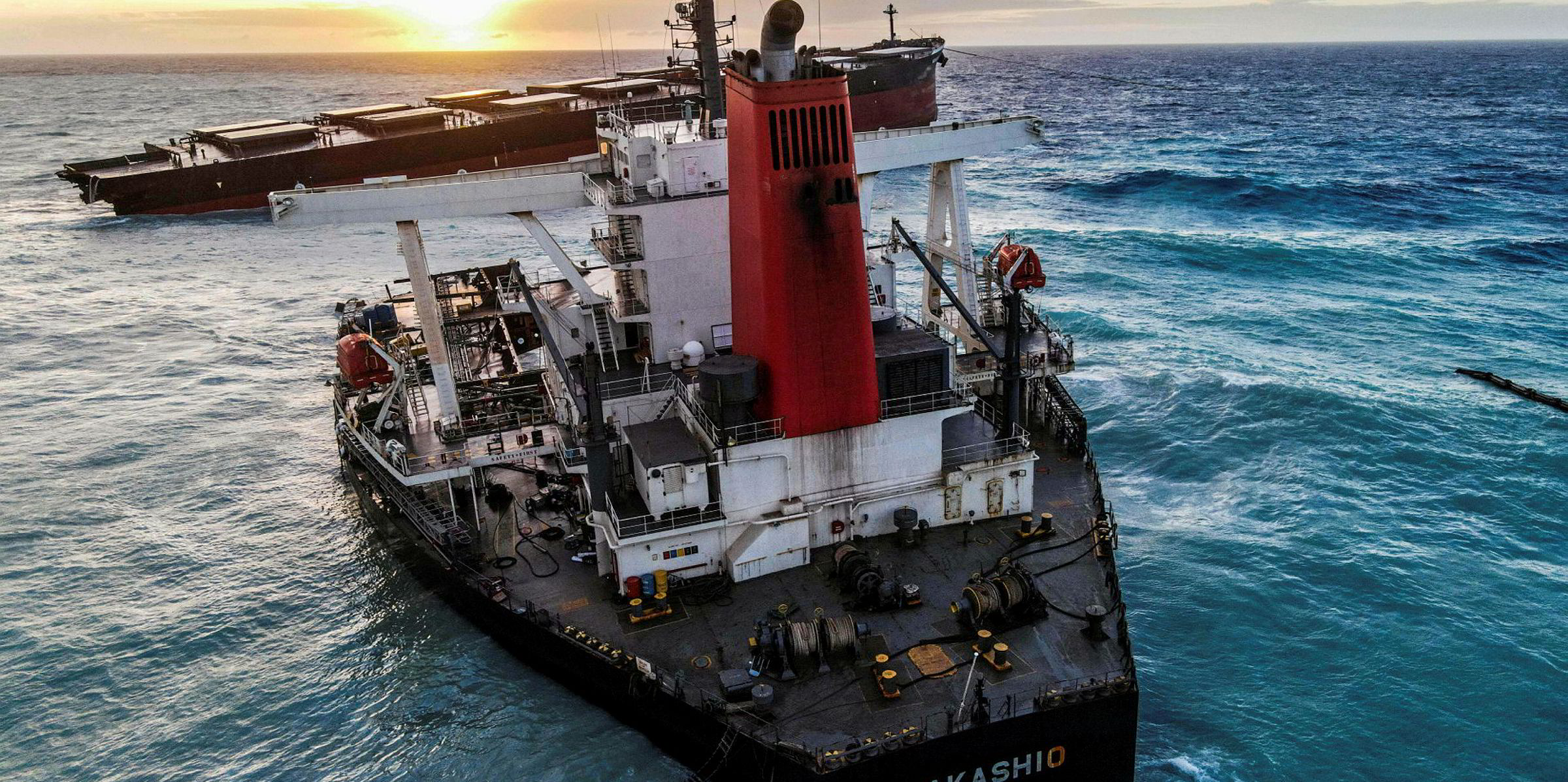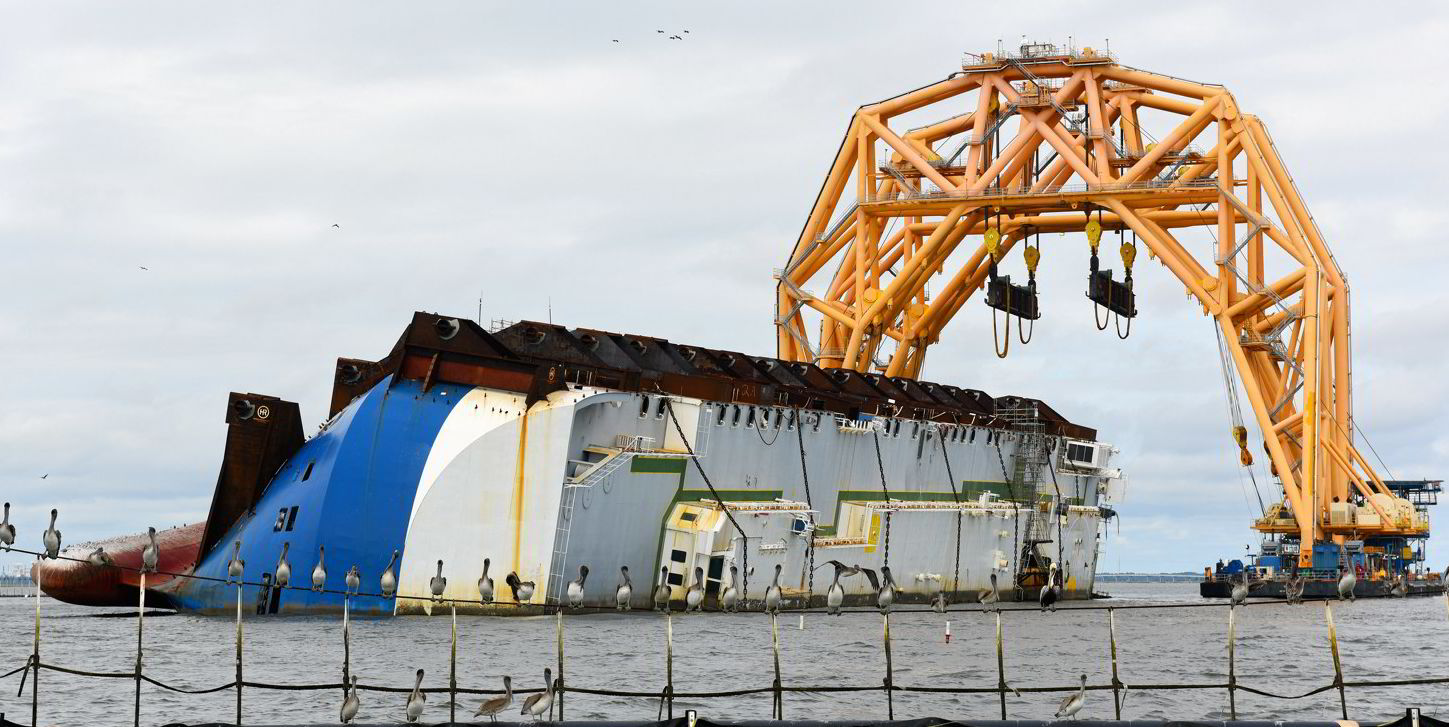The ongoing negotiations between the UK P&I Club and the Suez Canal Authority (SCA) over its $916m claim for the grounding of the 20,388-teu Ever Given (built 2018) that clogged the waterway in March could not have come at a worse time for protection and indemnity insurers.
The fallout from the incident that began on on 23 March 2021 continues just as the International Group of P&I Clubs is preparing to renegotiate the largest part of its $3bn two-year reinsurance deal with the commercial market.
The insurance body was already facing a significant hike in its reinsurance bills after lining up costly calls on its current deal, which expires in February next year.
The International Group’s P&I reinsurance scheme kicks in for pooled claims of more than $100m from its 13 members.
Reinsurers look like they will be paying out for the 2020 grounding of the 203,000-dwt Wakashio (built 2007) and the 2019 grounding of the 7,700-ceu Golden Ray (built 2017). Now the Ever Given is also expected to be added to the list of hefty reinsurance claims.
The eventual claims values are yet to be determined but the Golden Ray looks like the second-largest P&I claim ever, with reinsurers potentially facing about $700m of the costs.
Reinsurers may have concerns over the legitimacy of some of the SCA’s claim related to the Ever Given, but the expectation is that they will still have to pay out their share of whatever the UK P&I Club agrees.
SCA chairman Osama Rabie this week indicated that he is prepared to cut the claim from $916m to $600m, but a settlement even at these levels could be significant.
The impact on the International Group’s reinsurance costs on how much individual shipowners pay out in P&I expenses will vary depending on ship type. Tankers usually face the highest proportion of costs. However, most underwriters and brokers agree the reinsurance element is a “significant” part of the overall P&I cost.
Brokers are already preparing clients for the higher reinsurance bill to be passed on.
Tough renewal
Mark Cracknell, head of P&I at Marsh JLT Specialty, said: “It’s going to be a tough renewal. I don’t think enough is being said about what looks to be a significant issue out there.”
The situation has become even more difficult because generally the reinsurance underwriters are facing huge Covid-19-related losses and they are looking to recoup the money from all sectors at renewal.
“The group has presented quite a few large claims and the market is looking for increases any way, particularly in marine liability risks,” Cracknell said.
But he also added that the International Group reinsurance programme and the P&I pool claims system has been able to cope with previous high claims periods.
Most notably, the grounding of the Costa Concordia in 2012 turned out to be the biggest P&I claim ever, costing the International Group and its reinsurers about $1.5bn.
Cracknell said the other issue coming up against the International Group is the recent trend for reinsurers to put cyber and Covid-19 exclusion clauses into their cover.
They may seek to bring cyber and Covid-19 exclusions into the International Group deal, which would be at odds with primary P&I cover that includes both of these risks.
The P&I clubs were already planning significant increases in premiums at the next renewal but now have to prepare to break the bad news about additional reinsurance costs.
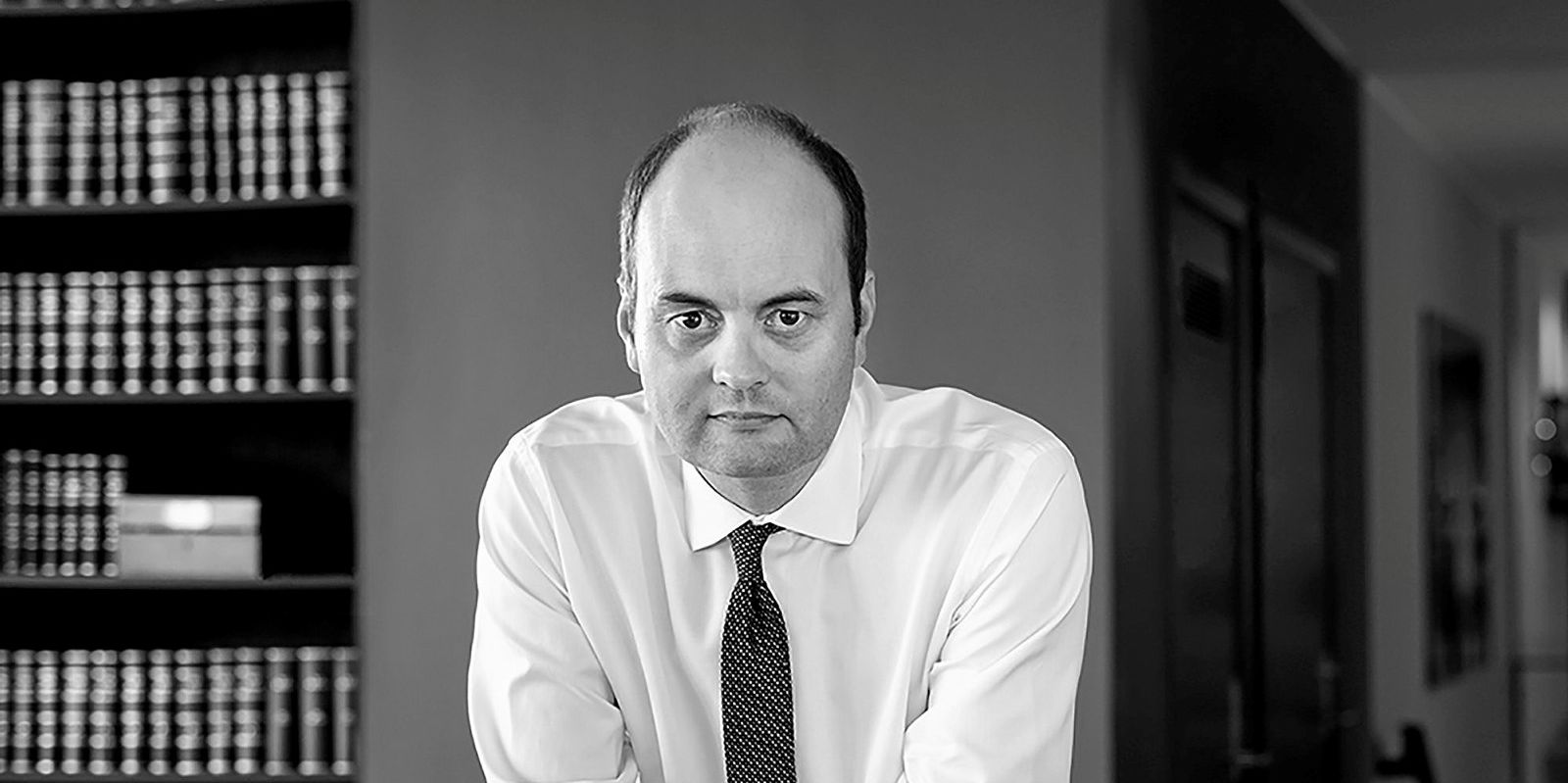
Skuld chief executive Stale Hansen said that he is now taking into account the prospect of higher reinsurance costs.
“It is certainly a factor to consider and will influence renewal,” he said. “The expectation is that we will see an increase in reinsurance costs.”
Skuld does not have an annual general increase in premiums but prefers to assess shipowners on their claims performance.
Find a balance
However, the Norwegian mutual is looking for higher premium income to balance out underwriting losses.
Hansen said not all of the higher reinsurance costs will be passed directly onto shipowners and a balance will have to be found between increasing reinsurance costs and more general efforts to earn higher premium levels.
One other issue for the P&I clubs is that it looks like they will be reporting another year of strong earnings.
With all of the mutuals demonstrating robust finances, it will make it more difficult to argue the case for premium increases from their members.
The clubs have been helped by the continued buoyant equity markets. The three that have reported so far this year — Skuld, the Shipowners’ Club and the Swedish Club — have all shown significant investment gains.
